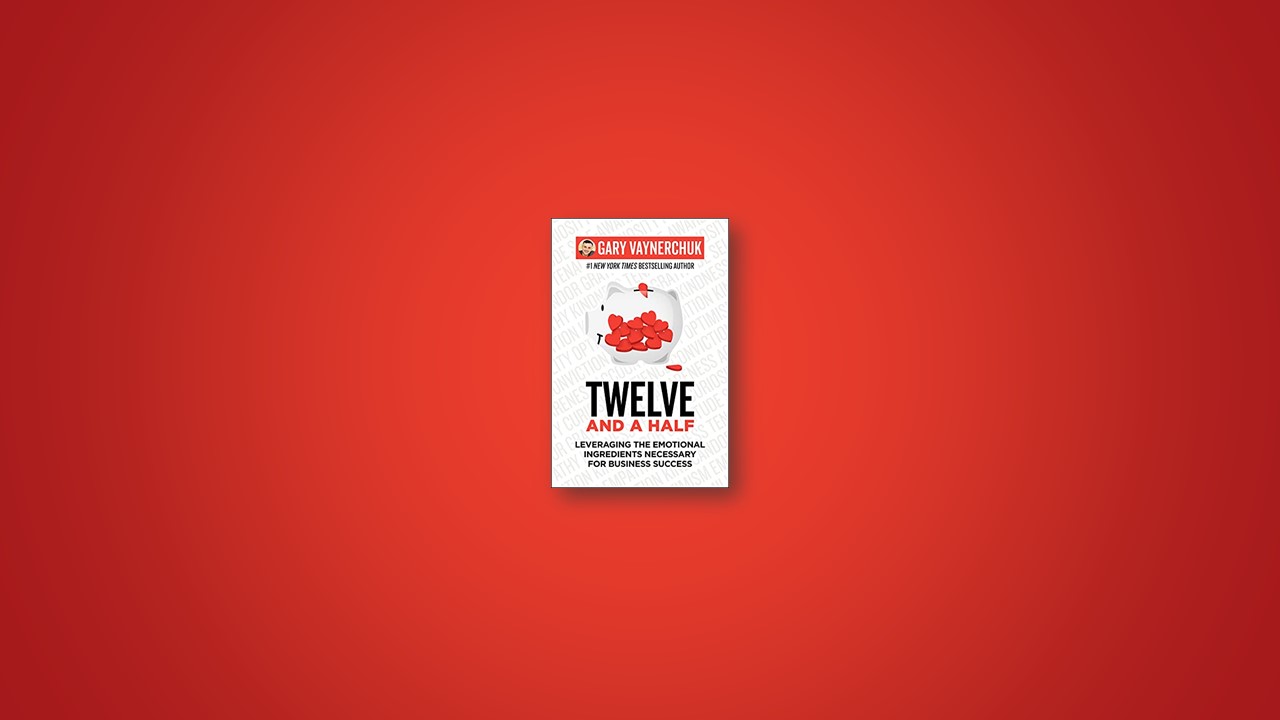Kindle | Hardcover | Audiobook
Gratitude
Be thoughtful and honest with yourself about your missteps, but don’t start dwelling on them. People beat themselves up and obsess about something that happened thirteen years ago—a business partnership that didn’t work out, a startup that failed, or a boss they didn’t like—and it becomes the jail they live in.
Anger and resentment are heavy ingredients to carry around. Gratitude is light.
If you’re truly grateful for what you have instead of being envious of what you don’t have, you’ll be a dominant force in business and, way more important, in life.
Self-Awareness
If you tell yourself, “You’re not good at running a business,” that doesn’t mean you’ll never have a successful, fulfilling career. Maybe you can build a personal brand for yourself as an influencer. Maybe you can make your impact as an executive. Maybe the reason you’re not good at running a business is that you don’t enjoy managing people, and you can bring in a partner with a complementary skill set.
When you fully accept yourself, you’re no longer scared of other people. On social media and in real life, humans tend to feel uncomfortable when they feel out of place. They feel that others are superior or that an insecurity they’re trying to hide will be exposed.
Self-acceptance helps one embrace self-awareness, not avoid it.
Accountability
People love to deflect blame from themselves onto other people. The greatest misconception is that avoiding accountability will lead to happiness, when in reality the reverse is true.
“It’s my boss’s fault I’m not getting paid enough.”
“Sally messed up my project.”
“That’s on Rick for not communicating.”
When you blame others, you’re admitting to yourself that you’re no longer in control. You give leverage to the person(s) you’re pointing your finger at, and you become a victim of the situation you’re in.
Instead of pointing a finger, consider pointing a thumb back at yourself.
“I need to ask my boss for a raise or get a new job.”
“I have to set a better framework to work with Sally in the future.”
“I need to set up quick check-in meetings with Rick.”
Accountability is the most challenging ingredient for most people, because their self-esteem is predicated on the outcomes of their actions. It’s hard to take blame when you’re not kind to yourself or optimistic about the future; taking it leaves you completely vulnerable to other people’s judgment.
Optimism
Choosing optimism over pessimism is, at the end of the day, wildly practical. It doesn’t mean being naïve or blind to the downsides in business or in life.
Optimism is being thrilled about your next at-bat, while acknowledging that you’re not guaranteed to hit a home run.
If this is hard for you, ask yourself what your defense mechanism is when something doesn’t go as planned. Do you default to blaming others and getting upset? Do you lack accountability? Do you use ego as a shield?
Or do you take accountability? Do you deploy gratitude to limit dwelling? Do you have perspective on life as a whole, outside of your business or career? Are you kind to yourself?
The other emotional ingredients will help you deal with losses more effectively, so you won’t be let down as often. When you know you won’t be let down, optimism comes naturally.
Empathy
When you can feel what another is feeling, you develop an extraordinary ability to manipulate human beings. I believe it’s the ultimate superpower. You can create carnage with it, or you can use it to uplift the world. In reality, this is about much more than just helping you win in business. It’s what the world desperately needs.
However, it’s one thing to have empathy. It’s another thing to use it.
A mother might intuitively feel that her young daughter has entrepreneurial ambitions, but they might live in—say—a remote part of Texas where cheerleading and pageant life is everything. The mother knows her daughter isn’t interested in that, but if the mother herself lacks self-esteem, she may subconsciously force her kid to become a cheerleader to avoid judgment from other moms. If you don’t have self-awareness (with self-acceptance and self-love, by association), then empathy might be one of your halves. Your own insecurities are like anchors weighing you down and preventing you from truly bringing value to others.
Kindness
You don’t have full context on anybody else. You don’t have 100-percent insight into what’s going through their mind or the events in their childhood that molded them into who they are today. So how can you judge them?
By the same token, when other people judge you, how can you take that judgment to heart when they don’t have all the context on you? Those who judge themselves harshly tend to judge others harshly too. Those who are kind to themselves tend to be kind to others.
You can be kind, be candid, and hold your ground all at the same time. When you’re in a confrontation with an employee, vendor, or client, kindness will let the other party open up to you in a way that would otherwise never happen.
If you’re too empathetic and kind without balancing it with candor, however, you set yourself up for resentment later in life. When you’re optimistic about the future, you can be the bigger person when others do wrong by you, but when time starts running out, you start lashing out.
Tenacity
If you want to be successful in anything, tenacity is essential. However, it should never come at the expense of your peace of mind and happiness. Tenacity should never equal burnout. I’m sad that some people haven’t been able to separate those two words.
Being tenacious is about telling yourself, “I enjoy my process so much that I am able to push through what others normally view as obstacles along the way.”
Conviction and tenacity work hand in hand. When you have conviction in what you’re doing, it’s easier to be tenacious.
Curiosity
When people lack curiosity, they dismiss new opportunities instead of taking the time to explore them. A lot of people thought that playing video games wasn’t a practical way to make money. Today, top-earning gamers and e-sports content creators are making millions of dollars every year.
The word curiosity is underrated in our society. It feels fluffy, academic, and childish, but I believe it’s one of the most important characteristics for success in business.
When you have curiosity, you need to protect it with humility at all costs.
To maximize the value of curiosity, you need a strong work ethic. You need a strong desire to continue learning, no matter how much you’ve accomplished.
Patience
Insecurity festers without the fertilizer of patience.
When you’re desperate to prove something to other people in the short term, you don’t give yourself a chance to enjoy the process. When you don’t enjoy the process, you become more vulnerable to burnout. If you’re forcing yourself down a path just because you think you’re going to make a million dollars by thirty and you don’t, you’re setting yourself up for major self-esteem issues at thirty-one.
Worrying about other people’s opinions of your accomplishments when you haven’t even achieved them yet is a common mistake. Patience allows you to deal with judgment from others in your twenties and beyond.
Those who are patient aren’t any less ambitious or tenacious. In fact, patience can give you permission to dream bigger.
Conviction
Conviction is the north star that keeps you on track, helping you be tenacious throughout your journey, despite the inevitable difficulties. Without conviction, you’ll miss big opportunities and lose because of other people’s opinions, which is the most devastating of all.
When you follow your convictions against society’s pushback, one of two things will happen: either you’ll be right, or you’ll be happy you saw it through. If you quit your well-paying law-firm job to start a clothing line and it fails two years in, you don’t need to feel ashamed for not keeping your job like your mom told you to. You can feel relieved that in your eighties and nineties you won’t be asking yourself, “What if I’d taken the leap?”
Humility
Humility is a requirement if you want to cultivate a lasting positive reputation and leave an admirable legacy. Leaders can’t sustain success without it. That doesn’t mean they can’t ascend to senior levels and make money. Depending on the organization, leading with ego may land promotions and raises—but those leaders will inevitably be talked about poorly behind their backs. If you want your reputation to endure the test of time, you absolutely need humility.
It’s one of the most attractive traits human beings can have.
When you have a fair, modest view of yourself, you have a significant advantage over others, because you’re willing to do what they aren’t. For those of you looking to build your brand, you need humility to post a video of yourself on the Internet for the first time.
Humility keeps you from overthinking the aspects of content creation that slow most people down: Does my picture look nice enough? What will people think of these colors?



